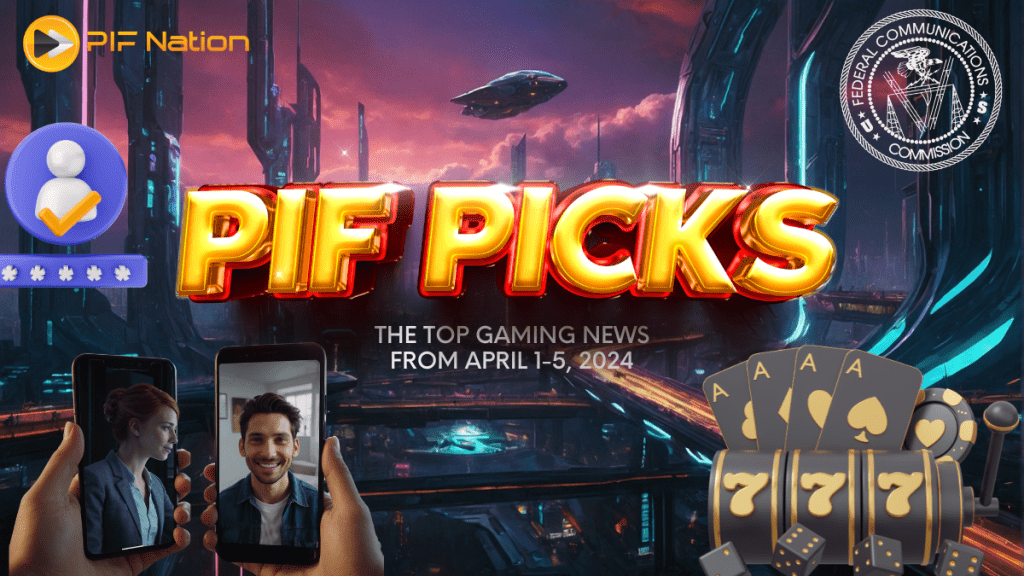Stay updated on the leading gaming news from April 1-5, 2024. Here are the latest game releases and significant events in the gaming sector.
FCC Poised to Revive Net Neutrality
On April 25, the Federal Communications Commission (FCC) will cast a pivotal vote on whether to reinstate net neutrality rules. If passed, this proposal would reintroduce a framework ensuring broadband services are treated as essential utilities under the law, providing a “national standard for broadband reliability, security, and consumer protection.”
Net neutrality is the principle that internet service providers (ISPs) must treat all data on the internet equally. It prohibits them from discriminating or charging differently by user, content, website, or platform. Established during the Obama era, it led to widespread public outcry and opposition from major organizations and companies.
The push to bring back net neutrality began in earnest with an executive order from President Biden in 2021. This move is lauded by consumer advocates and organizations like the ACLU for ensuring the internet remains “fast, open, and fair.” However, some groups have criticized the proposal, arguing that it could increase ISPs’ operational costs, hinder innovation, and elevate internet access prices.
Tech from Nokia and Vodafone Promises End to Video Call Freezes and Gaming Glitches
Nokia and Vodafone have embarked on tests to explore the potential of L4S technology to reduce lag in video conferencing and gaming dramatically. This pioneering technology, developed by Nokia’s research arm, Nokia Bell Labs, stands for “Low Latency, Low Loss, and Scalable” throughput. The tech addresses the critical issue of queuing delays on the internet, a major contributor to peak latency experiences.
The world’s first demonstration of L4S operating over Passive Optical Networks (PON) was conducted in Vodafone’s laboratory in Newbury, UK, utilizing an end-to-end fixed access network equipped with Nokia’s advanced technology. The setup included a broadband network gateway (BNG), a PON optical line terminal (OLT), multiple PON optical network terminals (ONTs), and Wifi access points, showcasing low and consistent end-to-end latencies across each network component.
Azimeh Sefidcon, head of network systems and security research for Bell Labs at Nokia, indicates that L4S technology could changethe performance of real-time applications on the internet. According to Sefidcon, video conferencing, cloud gaming, augmented reality, and remote drone operations could function seamlessly without significant queuing delays.
Paradise Co. Faces Sharp Revenue Decline in Casino Games
Paradise Co., a leader in foreign-only casinos in South Korea, faced a 31.5% drop in its March gaming revenue, falling to KRW 54.98 billion ($40.7 million). This decrease was largely due to a downturn in table games revenue, which plunged by 32.8% to KRW 50.92 billion ($37.7 million). Additionally, gaming machine revenue declined by 10.2%, reaching KRW 4.1 billion ($3 million).
Despite this monthly setback, Paradise Co. saw a 31.3% increase in its gaming revenue compared to March of the previous year. Table gaming revenue grew by 33.1%, and machine gaming revenue went up by 11.9% year-over-year.
Paradise Co. runs several casinos for foreigners in South Korea. These include Walker-Hill, Jeju Grand, Paradise City in Incheon, and Busan Casino. These establishments are tailored for international tourists and expatriates, offering various gaming and entertainment services.
FTC Rejects Gaming Age Verification Tool Over Privacy Concerns
The US Government has said no to the ESRB’s facial-age estimation tool for gaming. The Federal Trade Commission (FTC) made this decision, raising concerns about privacy and the tool’s accuracy. The ESRB and Yoti and SuperAwesome proposed this tool in June 2023. It aimed to use facial scans to check if gamers are old enough to play certain games, helping to comply with the Children’s Online Privacy Protection Act (COPPA).
Despite good intentions, the FTC found the proposal lacking. They questioned how it would verify a parent’s consent. Public worries also included fears about the tool’s accuracy and potential privacy risks. After missing deadlines to address these issues, the FTC rejected the application. However, the door remains open for future attempts.
This decision comes as gaming companies face legal issues over age-related laws. Both Xbox and Epic Games have paid hefty fines for COPPA violations. The ESRB’s attempt at a new verification method shows efforts to avoid similar legal troubles.
Missed out on last week’s Gaming updates?
That’s all the most exciting gaming news from April 1-5, 2024! Missed the gaming news last December? Click here for the gaming updates from March 25-29, 2024.

